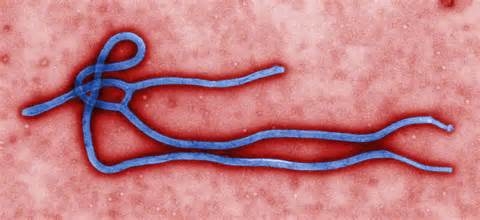
In the fight against the latest Ebola outbreak, underfunded medical workers in West Africa are logistically outmanned.
The number of West Africans killed in the Ebola outbreak is approaching 500, and the disease has spread since January from the Guinean epicenter of Gueckedou to Liberia and Sierra Leone. Medical workers striving to contain the hemorrhagic disease are failing—and at least 32 of them have died after being infected.
International support for these indigent nations has been insufficient, despite assistance from Médecins Sans Frontières, the United Nations, and scientists from the United States and elsewhere.
“If we do not provide the support to stop the transmission,” Liberia’s deputy health minister, Bernice Dahn, warned during a recent emergency meeting in Ghana, “other countries will get infected as well.”
The World Health Organization says $10 million will be needed during the next six months to address the crisis—which is less than one watchmaker raised through Kickstarter. But throwing cash at the virus won’t send it to oblivion.
“Logistical challenges are a bigger issue now than money,” says George Mason University’s Kathryn Jacobsen, the author of a new “call to action” paper published online Saturday in The Lancet.
Once the Ebola virus jumps from an animal to a person, through the consumption of wild meat, for example, the victim can spread the disease to others, even during funeral rituals.
During outbreaks since 1976 in Sudan and what is now the Democratic Republic of Congo, the disease killed most of its victims—by triggering the bloody crumbling of organs. German researchers reported in May in Antiviral Research that they cured mice that had been infected for six days with Ebola using Favipiravir, an anti-viral drug being developed for the treatment of influenza. But that drug is not yet available even in wealthy nations—let alone in West Africa. Other drugs that can provide protection against Ebola must be taken within two days of infection, which is an impossibly short time frame to treat a viral pathogen whose symptoms can take two to 21 days to manifest.
In the paper, Jacobsen and fellow researchers affiliated with the Mercy Hospital Research Laboratory, which runs an infectious disease surveillance project in Sierra Leone, described the critical problems that are helping Ebola run rampant:
•Most fevers are treated in the region at home using over-the-counter or traditional medicines. There’s very little incentive for the sick and dying to seek expensive medical care. Hospitals lack sufficient staff and equipment. Few, if any, laboratories are capable of safely testing for diseases such as Ebola. And that all means that many Ebola cases could be going undetected, allowing the disease to spread.
•Data sharing and other technological tools for tracking disease outbreaks are severely lacking.
•The few doctors and nurses working in the region lack access to equipment that would protect them from infection, making some reluctant to provide treatment.
•Communication between health authorities and residents is often poor.
“It’s important both to allocate resources for immediate containment activities and to prioritize longer-term capacity building that will improve future responses to Ebola—and other emerging infectious disease threats,” Jacobsen says
